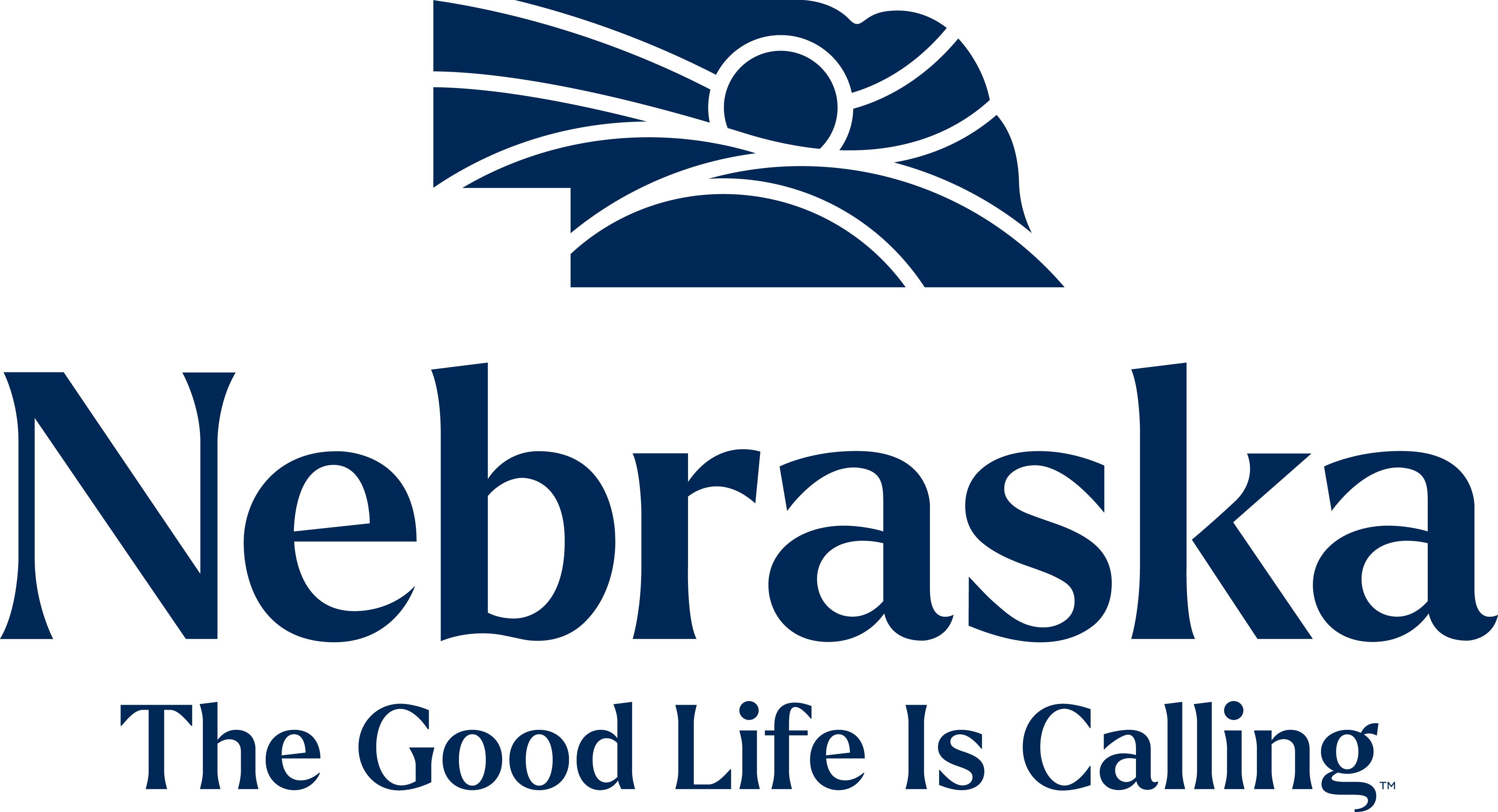Affirmatively Furthering Fair Housing

What is AFFH?
Title VIII of the Civil Rights Act of 1968, known as the Fair Housing Act, requires HUD Grantees (i.e., DED), Successful Applicants, and Subrecipients of Federal funds from HUD to affirmatively further the policies and purposes of the Fair Housing Act, also known as “affirmatively furthering fair housing.”
Want to Learn More?
Refer to Chapter 11: AFFH of the CDBG-DR Manual for further policy guidance related to this cross-cutting requirement. The State of Nebraska’s 2020 Analysis of Impediments to Fair Housing Choice provides information on fair housing issues, contributing factors, and proposed achievements. For HUD AFFH resources, see the following:
- Overview: AFFH
- Fact Sheet: Community Participation and AFFH Guidance for Consolidated Plan Program Participants
- Fact Sheet: Community Participation and AFFH Guidance for Public Housing Agencies
- Fact Sheet: The Fair Housing Planning Process Under the AFFH Rule
- Fair Housing Rights and Obligations
- HUD’s mapping tool, which provides access to maps and reports that illustrate segregation trends, areas of concentrated poverty, disparity in housing needs and access to opportunity, and location and tenant characteristics of publicly supported housing for every HUD entitlement community in the country.
Roles and Responsibilities
Nebraska Department of Economic Development
As a Grantee of HUD funds through the CDBG-DR program and pursuant to the Federal Register Notice published January 27, 2020 (85 FR 4681), DED shall ensure that programs are developed and implemented with the objective of addressing inequity among protected class groups, promoting integration, and transforming racially or ethnically concentrated areas of poverty into areas of opportunity. The State of Nebraska has further articulated in its Action Plan (if this link is broken, please search for the file here) the intent to prioritize vulnerable populations as a cross-cutting element in all activities.
Subrecipients and Successful Applicants
Subrecipients and Successful Applicants must maintain compliance with requirements set forth in the Affirmatively Furthering Fair Housing Policies and Procedures (if this link is broken, please search for the file here), which can be organized into four phases, as outlined in the figure below. Throughout a program’s lifecycle, Subrecipients and Successful Applicants must establish and maintain sufficient records to demonstrate compliance with AFFH requirements.

Assessment
Identify and Prioritize Vulnerable Populations
Most Impacted and Distressed Areas
For CDBG-DR allocations, HUD identifies the “most impacted and distressed” (MID) areas. Pursuant to the federal requirements for DR-4420 (85 FR 4681), a minimum of 80% of these funds must be invested in HUD-defined MID areas.
Data Points
Within the Action Plan, DED emphasizes maintaining awareness of vulnerability as characterized by poverty areas, school proficiency, labor market engagement, jobs proximity, transportation costs, transit trips index, and environmental health indicator. These data points can help inform the identification of vulnerable populations, particularly those that can be categorized as LMI.
Priority Populations
DED has seven (7) populations who should be prioritized through affirmative marketing strategies.
- Racially/Ethnically Concentrated Areas of Poverty (R/ECAP);
- Veterans;
- Elderly (age 65 and older);
- Limited English Proficiency (LEP) individuals;
- Persons with disabilities, including self-reported access and functional needs (AFN) or persons with a hearing, vision, cognitive, ambulatory, self-care, or independent living difficulty;
- Persons experiencing homelessness; and
- Individuals requiring supportive housing, as characterized in 24 CFR § 91.315(e).
Development
Affirmative Marketing Plan
All Subrecipients and Successful Applicants under the CDBG-DR Housing Programs must develop an Affirmative Fair Housing Marketing Plan (AFHMP) and must be submitted to DED for approval. The AFHMP must outline strategies to inform the public about the housing opportunities, requirements, and practices that the awarded entity must adhere to in executing the AFHMP.
DED requires that Subrecipients and Successful Applicants develop their AFHMP using the HUD-provided version of the plan via the link here: Affirmative Fair Housing Marketing Plan (AFHMP) Multifamily Housing
The following are affirmative marketing strategies Subrecipients and Successful Applicants can use to conduct outreach:
- Community meetings and public hearings;
- Television and radio;
- Billboards and other signage;
- Social media;
- Digital and print advertisements; and
- Earned media.
Implementation
Outreach and Engagement
Cross-Jurisdictional Collaboration
Subrecipients and Successful Applicants are encouraged to reach out to other local communities to collaborate on AFFH because issues tend to cross jurisdictional boundaries. Collaboration can include sharing data and local knowledge and building cross-jurisdictional strategies. Additionally, Subrecipients and Successful Applicants may choose to create joint outreach or communication plans to reach populations that cross jurisdictions. Program participants may collaborate on efforts even if they are not contiguous or adjacent.
Limited English Proficiency (LEP) Requirements
Nebraska is committed to ensuring that individuals with LEP are able to participate and benefit from the CDBG-DR programs. Applications and forms shall be offered in English and other languages prevailing in the region when requested. In addition, every effort will be made to assist such applicants in the application process. More information regarding this accommodation is available in the Citizen Participation Plan (CPP).
Accessibility Requirements
Nebraska is committed to ensuring that individuals with disabilities are able to participate and benefit from the CDBG-DR programs. Individuals with disabilities can request accommodation, including those that require modification of policies and programs or exceptions, unless doing so would be a fundamental alteration of the program. Measures will be taken to make the program accessible to persons who are considered members of a protected class under the Federation of Housing Associations (FHA) by holding informational meetings in buildings that are ADA compliant, providing American Sign Language (ASL) assistance when requested, and providing special assistance for those who are blind or have low vision when requested. More information regarding this accommodation is available in the CPP.
Online Engagement
Subrecipients and Successful Applicants must provide access to the State website to all program beneficiaries. Subrecipients and Successful Applicants implementing project activities that require affirmative marketing and outreach are recommended to provide information regarding their CDBG-DR program on their local website.
Reporting and Recordkeeping
Reporting
Subrecipients and Successful Applicants must complete quarterly reports as part of regular program activities. Quarterly reports must include a comprehensive summary of all outreach and marketing activities by county, along with data regarding outreach efforts in project areas. Reports will be evaluated on the basis of expected activity at the time of submission (i.e., DED acknowledges that there may not be significant activity during the first 30-60 days of development and construction).
Recordkeeping
Documentation of outreach and marketing activities, including copies of all advertisements and announcements, must be retained and made available at DED’s request.
For each program activity requiring a direct application by an individual or non-institutional entity, Subrecipients and Successful Applicants must maintain and report the following information:
- Beneficiary household’s income;
- Household’s income as a percentage of AMI as defined by HUD;
- The race and ethnicity of the head of household;
- The household’s familial status; and
- The presence or non-presence of a household member with a disability.
For each activity providing housing or housing assistance that is not directly linked to a specific beneficiary, Subrecipients and Successful Applicants must maintain and report the following information:
- The cost of the housing unit to the beneficiary and the occupant;
- The maximum qualifying household income as a percentage of AMI as defined by HUD;
- Restrictions regarding the age or familial status of occupants; and
- The presence or absence of designs or services that make the housing unit accessible to an individual with a disability and the number of fully accessible units.
Subrecipients and Successful Applicants must maintain the following records to ensure compliance with AFFH statutes and regulations:
- Records demonstrating compliance with the consultation and community participation requirements of 24 CFR § 5.150 and applicable program regulations;
- Records demonstrating the actions taken to affirmatively further fair housing;
- Documentation that housing and community development activities are in compliance with applicable nondiscrimination and equal opportunity requirements;
- Records demonstrating that consortium members, units of general local government receiving allocations from a State, or units of general local government participating in an urban county have conducted their own or contributed to the jurisdiction’s assessment and documentation demonstrating their actions to affirmatively further fair housing; and
- Any other evidence relied upon by the program participant to support its affirmatively furthering fair housing certification.
Evaluation
Evaluate Ongoing Successes and Challenges to AFFH
Fair Housing Agencies
Program Subrecipients and Successful Applicants are recommended to leverage the following local Fair Housing Agencies to gain access to information and outreach necessary for the success of their specific projects:
- HUD Field Office; and
- Nebraska Equal Opportunity Commission.
Long-Term Recovery Groups
Program Subrecipients and Successful Applicants are recommended to leverage the State’s network to gain access to information and outreach necessary for the success of their specific projects. DED regularly meets with Long-Term Recovery Groups (LTRGs) to “maintain a pulse of the situation on the ground” and provide a channel for stakeholder organizations to ask questions and provide comments throughout CDBG-DR program design.
Field Staff
Field Staff are positioned throughout the State, and serve as a resource to assist communities, established business owners, new entrepreneurs, and everyday citizens in any aspect of economic development (from support for business expansions to disaster recovery, workforce housing development, and more). This continuous flow of information—feedback from the field and answers to questions—has established effective two-way communication that can serve as a benchmark for the grant implementation phase. DED shall continue to leverage these groups to develop robust application and program guidelines to best serve impacted communities. Program Subrecipients and Successful Applicants are recommended to leverage these groups, whenever possible.
Complaints
Should Grantees, Successful Applicants, and Subrecipients experience housing-related discrimination, complaints can be filed directly with DED by contacting the CDBG-DR Program Manager through the following means of communication.
To the Nebraska Department of Economic Development
Phone: 800-426-6505
Postal Mail:
Nebraska Department of Economic Development
Attn: CDBG-DR Program Manager
245 Fallbrook Blvd, Suite 002
Lincoln, NE 68521
Frequently Asked Questions
Q: Are we required to have an affirmatively furthering fair housing policy in place for projects or programs that do not involve housing assistance or construction?
A: The State of Nebraska prioritizes vulnerable populations. Therefore, affirmative marketing requirements and programmatic structures apply to all CDBG-DR programs. The AFFH requirements outlined above are not restrictive to housing program projects, but rather any project implemented using CDBG-DR funding. For more information, see the Action Plan under section 6.2.2.8 and requirements described in Chapter 11: AFFH of the CDBG-DR Manual.
Q: What are some best practice actions to take to meet fair housing requirements?
A: The State of Nebraska recommends following the guidance provided for outreach, affirmative marketing strategies, and reporting outlined in Chapter 11: AFFH of the CDBG-DR Manual as well as guidance for Subrecipients and Successful Applicants early on in the application process to ensure fair housing requirements are being met.
Contact Information
Questions and comments regarding CDBG-DR programs should be directed to the State of Nebraska’s Department of Economic Development (DED) via email at ded.cdbgdr@nebraska.gov or by calling (800)-426-6505.

